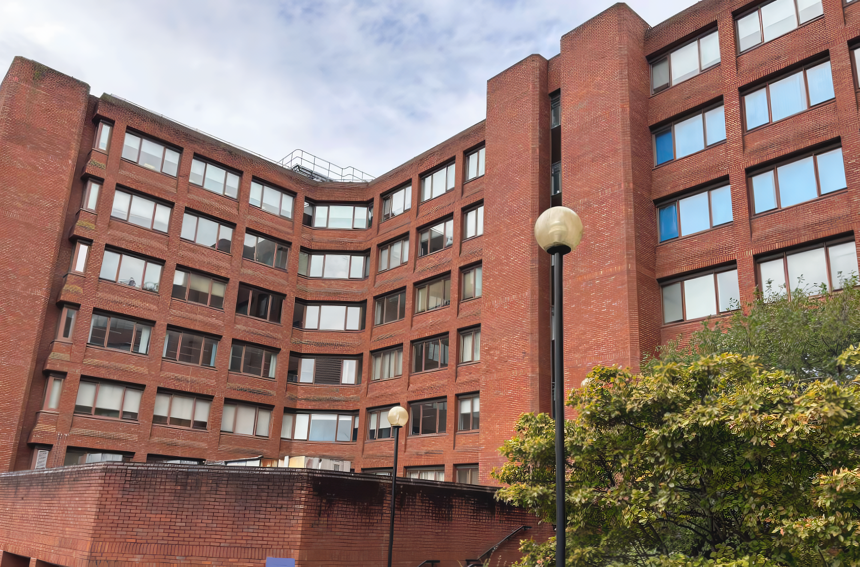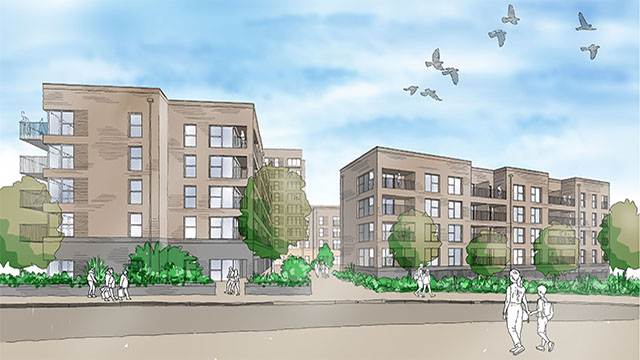Among a plethora of hotel operators that have established themselves on Britains fair shores are French group Accor and US-based Marriott.
Although from very different origins, both companies have firmly made their mark on the UKs hotel market. Even after a bad year for the hotel industry as a whole, they are still marching on with expansion plans.
It is this resilience that makes London and the UK an attractive proposition to European and international hotel chains such as French group Accor, and US-based Marriott. Both are well established in the UK, and despite the tough times of recent months, are still looking to expand. Both companies give an insight as to why Britain is such a good choice for expansion, and the problems they have encountered.
Accor
Michael Flaxman, managing director of Accor, sums up his feelings about the UK market: 11 September has had an impact on London. In the early 80s when terrorist activities were causing similar problems, the London market showed a propensity to bounce back. It continues to have one of the highest occupancy levels of any city in the world.
Flaxman points out that the UK as a whole has one of the best hotel markets in the world and that its historical performance has been very consistent both in London and the regions. It has proved itself on a number of occasions to be a very resilient market and recent months have proved no exception. The provincial market has not been impacted on at all. Accor has seen year-on-year growth for its provincial hotels and even our competitors provincial markets have only shown a small decline.
Accor stands testament to the thriving nature of the UK hotel industry. The company first entered Britain in the 1970s, but it was not until the early 1980s that it looked at serious expansion. A third wave of development took place in the early 1990s with the fourth and biggest expansion programme beginning in the late 1990s and still continuing. Accor now has 85 hotels in the UK, compared to just 30 four years ago.
Its 16 Novotels are aimed at the mid-scale market, which Flaxman believes will continue to be strong in the UK. Accor has also invested aggressively in its Ibis brand.
Introduced into the UK four years ago, Ibis aims to fill a niche in the UK market for those seeking economy prices without missing out on service. Recent projects include a five-star Sofitel in Londons St Jamess developed from an old bank.
The biggest issue when developing in London and the most time consuming is planning permission, says Flaxman. London is particularly sensitive so it takes a long time to work with planners. I think we have relative success in working with them. Signage represents the biggest problem. It is particularly important for hotels to have signage that is clearly visible, but it proves a universal problem in London to persuade planners to agree to proposed signage for hotels. Planning is more of a problem in the UK than in most other countries, particularly in London. UK planners are more pedantic in enforcing legislation.
Accor has two main criteria when choosing a UK site. The first is that the size and cost of the land will prove financially viable for the brand that is planned for.
Some pieces of land will be right for a five-star but not right for a three-star, says Flaxman, although Accor succeeded in introducing the brand to several major cities by building side adjacent to a Novotel hotel. The two brands together make the cost of the land a viable expense. This technique has been used in Manchester and Glasgow and a similar proposition is planned for London. The concept offers cross-selling opportunities, says Flaxman, although separate management teams run each hotel independently, and each has a completely distinct entrance and is based in separate buildings.
The second criteria when developing a new site in Britain is that it is in an area that will appeal to the specific brands customer base. The customer mix for both Ibis and Novotel is very diverse, with both tourist trade and business trade important depending on the time of year and the day of the week, explains Flaxman. The service offers has to be orientated towards these different sectors. At certain hotels, services will change at weekends to accommodate the leisure trade. For example, the restaurant menus will be more family orientated, the breakfast period and checkout time are extended and children are offered gifts as they arrive. Children under 16 stay free.
Accors expansion process is set to continue in the UK with 10 new hotels under construction under all brands. The companys aim is to develop between 10 and 15 hotels each year.
Flaxman has not ruled out that part of this expansion program could include the use of a franchise agreement. We would be interested in any multiple franchise operations rather than single-sites, he says. This concept would be relevant to both Ibis and Novatel. Worldwide 20% of these brands are franchised. A franchising agreement would offer us the chance to establish a good network and accelerate the expansion progress.
Just as Accor has expanded its presence in the UK, so domestic chains need to look to the continent, concludes Accors Flaxman: Domestic chains will need to look at establishing at least a European presence if they are to remain competitive. Because we provide such a range of products from budget through medium to luxury, we are resilient to variations in the market.
Accor First entered Britain in the 1970s
Brands: Sofitel (top range), Novotel (mid-market), Ibis (budget)
Number of hotels: 85 across the three brands
Marriott
It is through franchise agreements that Marriott has expanded beyond its London heartland. The Whitbread Hotel Company is Marriotts largest international franchisee, operating 59 Marriott branded hotels in the UK.
The agreement began in 1996 when Whitbread Hotel Company purchased 16 Marriott branded hotels from Scotts Hospitality of Canada for £183m, in tandem with a partnership agreement with US-based Marriott International to use the Marriott name in the UK.
Another milestone in the growth of the Marriott brand in the UK took place in January 2000 when the company purchased Swallow Group for £650m and announced plans to convert 26 Swallow hotels to the Marriott brand. To date £50m has been invested in converting 23 Swallow hotels with one hotel still to convert.
A mix of organic growth and acquisition has seen the brand grow from 16 hotels to 59 and by August 2003 there will be 61 Marriotts in the UK.
Marriott Hotels in the UK represent a mixture of city/town centre properties as well as country club hotels that offer extensive golf and leisure facilities. When it comes to new development Whitbread prefers to build from scratch, says Hugo McNestry, director of business development for the Whitbread Hotel Company.
Building from scratch allows us complete freedom of design as in our contemporary Heathrow Marriott hotel, says McNestry. However, we have some good examples of conversions, not least of which is our flagship County Hall Marriott hotel in London. To significantly increase the size of your estate in the four star market acquisitions of existing hotels is the quickest option as suitable new sites for new builds are not that easy to come by. The Swallow acquisition in January 2000 meant that we increased our estate by some 26 hotels, after an 18-month brand conversion programme.
Whitbread takes a fundamental approach to choosing sites for Marriot hotels. We look at potential sites through the eyes of our guests and location is the number one factor, says McNestry. Whether that be key business centres, leisure destinations or just away from it all in secluded countryside. Marriott also has a minimum room size that we take into account when building a hotel or converting an existing property.
McNestry continues: In general the criteria for a site on whether it will be business or leisure hotel is its location. Many hotels cater to both, and when we build or convert a hotel it will comprise a mix of business and leisure facilities.
Marriott
Marriott UK started expanding through a franchise agreement with Whitbread, signed in 1996
Brands: Marriott hotels, Courtyard by Marriott and two Renaissance hotels
Number of hotels: 61 Marriotts










